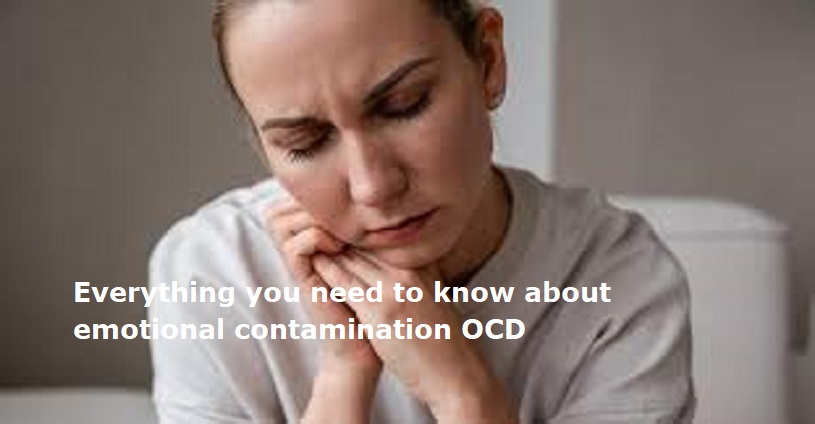
Obsessive-compulsive disorder (OCD) is a mental health condition in which a person may have frequent unwanted thoughts that cause them to perform repetitive behaviors. To get rid of the thoughts, they feel driven to do something repetitively (compulsions). The repetitive behaviors, such as hand washing/cleaning, checking on things, and mental acts like (counting) or other activities, can significantly interfere with a person’s daily activities and social interactions.
There is a lesser-known subtype of OCD known as emotional contamination OCD. This can manifest in quite different ways.
Unlike traditional contamination fears focused on physical germs, emotional contamination OCD centers around the fear of emotional or mental contamination. Individuals with this type of OCD believe that negative emotions, thoughts, or even personality traits can spread from people, places, or objects, causing harm to themselves or others.
Potential causes:
The exact cause of emotional contamination OCD is unknown, but several factors may contribute:
Genetics: Having a family history of OCD or other mental health conditions increases the risk.
Brain chemistry: Imbalances in brain chemicals like serotonin may play a role.
Early life experiences: Traumatic or stressful events in childhood might be a factor.
Cognitive factors: Misinterpreting thoughts and emotions, and magical thinking patterns.
Common symptoms:
Also Read: Simple tips to prevent urinary tract infection during winter
Fear of emotional pollution: Individuals may feel overwhelmed by the fear of absorbing negative emotions such as anger, guilt, or shame from others.
Avoidance behaviours: To cope with their fears, individuals may avoid social interactions or situations where they perceive emotional contamination may occur.
Excessive reassurance seeking: Constantly seeking reassurance from others to alleviate anxiety about emotional contamination.
Compulsive behaviours: Engaging in rituals or compulsions to neutralize perceived emotional contamination, such as mental rituals or excessive washing.
Interpersonal difficulties: Strained relationships due to difficulties in maintaining emotional boundaries and expressing oneself freely.
Treatment options:
Cognitive-Behavioral Therapy (CBT): Specifically, Exposure and Response Prevention (ERP) is a common form of CBT used to treat OCD.
Medication: Selective serotonin reuptake inhibitors (SSRIs) or other antidepressants may be prescribed to help reduce symptoms of OCD.
Support Groups: Joining support groups or seeking peer support can provide validation, encouragement, and practical coping strategies for managing emotional contamination OCD.
Mindfulness and Relaxation Techniques: Learning mindfulness and relaxation techniques can help individuals better manage stress and reduce anxiety associated with emotional contamination fears.

Post Your Comments